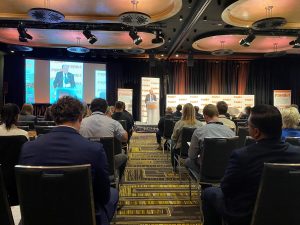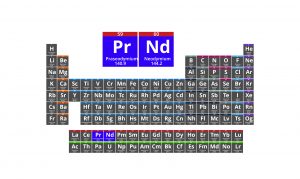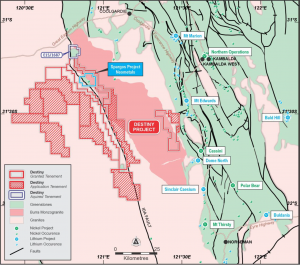Western Australia Minister for Mines and Petroleum Bill Johnson told delegates at Paydirt’s Australian Nickel Conference in Perth this morning that the State Government had in August provided a public submission to the Commonwealth advocating for nickel and copper to be included on Australia’s critical minerals list.
“We know that the global decarbonising journey is making nickel far more important as it becomes a critical element of the new batteries that unlock renewable energy,” Minister Johnston said.
“The Government of Western Australia is providing very strong support to our global battery and critical minerals supply chain, with the primary goal of increasing the value-added activity here in WA.
“So, the opportunities for nickel, from exploration to downstream processing, are huge.”
Western Australia has the world’s largest nickel reserves, along with Indonesia, and the second largest reserves of cobalt.
Last year WA recorded $5.7 billion in nickel sales, making it the fifth most valuable commodity in the State. Cobalt, often produced as a by-product to nickel, added a further $500 million to State revenue.
Global electric vehicles sales went up by 50 per cent around the globe last year and by 2030 it is expected that 60 per cent of all global motor vehicle sales will be battery electric – to meet that demand there will need to be a further 60 nickel mines open around the world before 2030.
The Minister said the Cook Government had recognised nickel as part of the State’s Future Battery and Critical Minerals Industry Strategy.
“From our perspective, even though we are not strong in copper, we recognise copper is a critical element in the decarbonisation journey, and clearly we also believe nickel is as well,” he said.
“We want to make sure that nickel and copper are included on the [critical minerals] list, because it does help when dealing with the bureaucracy when they are on the list, so we will continue to lobby for that.
“I think it is good that the Commonwealth is systematically addressing the critical minerals space, and I don’t want to be seen to be unnecessarily critical, however I suppose the east coast of Australia doesn’t understand how advanced WA already is in the critical minerals space.”

Western Australia Minister for Mines and Petroleum Bill Johnson addresses delegates at Paydirt’s Australian Nickel Conference in Perth



